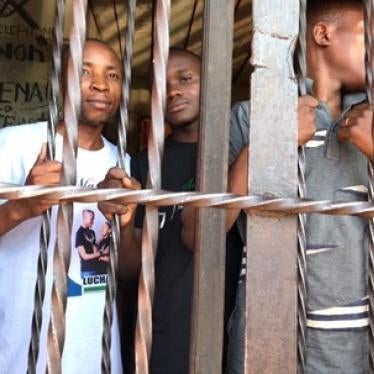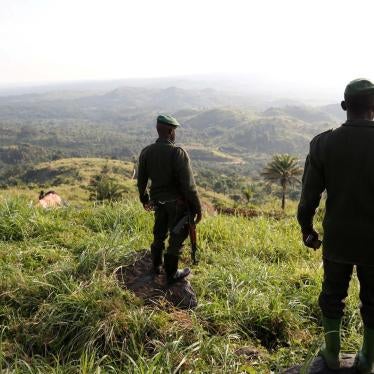On July 18, Jacky Ndala, youth leader for the political party Together for the Republic (Ensemble pour la République), noticed unusual activity outside his house in Kinshasa, the capital of the Democratic Republic of Congo. In a message widely circulated on social media, he described seeing jeeps and men in civilian clothes with radios in hand.
The men, officers in Congo’s National Intelligence Agency (Agence nationale de renseignements, ANR), picked him up around 9 a.m. Ndala spent the following night at “3Z,” a notorious ANR jail, before being handed over to a prosecutor. Two days after his arrest, on July 20, a court sentenced him to two years’ imprisonment for “incitement to civil disobedience” and transferred him to Kinshasa’s central prison. His lawyer said Ndala would appeal the verdict.
The arrest and summary trial came after Ndala told party members last week in the Lingala language to stand ready to “go protest at the People’s Palace [parliament]” in case a controversial draft law was debated. Known as the Tshiani or “congolité” bill, the law, if passed, would exclude from presidential office and senior institutional positions any Congolese with one parent of non-Congolese origin. This draft nationality law would discriminate against many Congolese citizens because of their parents’ nationality, further undermining human rights in the country.
The bill is widely seen as an attempt to sideline Moise Katumbi, who heads the Together for the Republic party. Although the party is currently part of President Felix Tshisekedi’s government, Katumbi himself is considered to be one of Tshisekedi’s potential opponents for the next general election in 2023.
In 2018, former President Joseph Kabila’s administration barred Katumbi from reentering the country to register his candidacy, effectively denying him his right to run for president.
The draft law has already triggered a deluge of discussion and diatribe on social media. Kinshasa’s archbishop, Cardinal Fridolin Ambongo, described the bill as “an instrument of exclusion and division.” Bintou Keita, head of the United Nations peacekeeping mission in Congo, warned the UN Security Council of “potentially dangerous consequences of a divisive debate on nationality.”
Authorities may prosecute incitement to violence. But a rushed trial and harsh sentence suggests that the case was more about the mounting repression against dissent than a genuine matter of public order. Parliament should reject a draft nationality law that will entrench discrimination among Congolese citizens and fuel political unrest.









